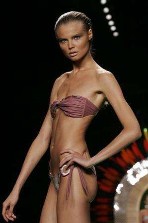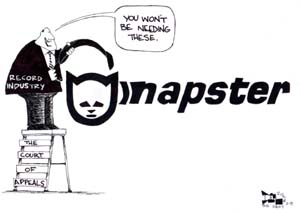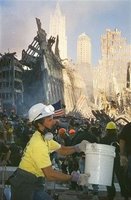In my view The Kite Runner is an epic story with a personal history of what the people of Afghanistan had and have to endure in an ordinary every day life; a country that is divided between political powers and religiously idealistic views and beliefs which creates poverty, and violence within the people and their terrorist run country. The story line is more personal with the description of Afghanistan’s culture and traditions, along with the lives of the people who live in Kabul. The story provides an educational and eye-opening account of a country's political chaos. Of course there are many things that are unsaid and under explained in this tragic novel which, in my observation, is an oversimplification. There is also a heavy use of emotional appeal, and an underlying message. This is a flag for propaganda.
The Kite Runner by Khaled Hosseini begins in the 1970s in Kabul, Afghanistan, when the country is in a time of an ending monarchy. The main character, Amir, is the son of wealthy Afghanistan business man, and his playmate, Hassan, the son of his father's houseman, Ali. Hassan is a Hazara and Amir is a Pashtun, which makes them from different social classes. The author has undoubtedly stirred my emotions and I admit that I did cry several times. I think that this was the author's objective; this is an appeal to emotion, one of the fallacies of propaganda. Propaganda is a message or an idea that persuades the audience to change their perspectives in one way or another. There are many faces of propaganda but this to my knowledge is one that is easy to recognize. I ‘m not saying I didn’t like The Kite Runner, the author had me after the first chapter and then I couldn’t put it down. However I am naïve when it comes to politics and propaganda, so at first I didn’t even consider this book a form of persuasion. But as I thought about it, I came to the conclusion that The Kite Runner is just that.
There are many oversimplifications and stereotypes, even if they may be from a reality-based ideology. The ethnic group of the Hazara and the Pashtun is not entirely developed. Amir was always referred to as a Pashtun but the background of the Pashtun isn’t fully touched upon. The narrator only focuses on the Mongolian-like physical features of the Hazara’s, and because of this diversity, they are considered a more lowly class than Pashtuns. They are commonly viewed as an outsider; only being fully accepted into society to be servants for wealthy Pashtuns like Amir, and his Baba. Assef, the hated and much renowned bully in Kabul who just happens to worship Hitler and his beliefs of ethnic-cleansing, is a stereotype. I loathed him when reading this novel, but in every story there has to be the “good guy” and the “bad guy,” which are also labels. Of course there always has to be two goons backing the bully; Wali and Kamal in this case. Assef portrayed the perfect evil character; the child raping, Hitler-worshipping racial-supremacist! It’s a given to hate this guy, he is committing the ultimate crime that everyone disgusts.
A short history: the meaning of propaganda significantly changed after Hitler had continuously used it to gain power and control over his audiences. The term was and still is linked with words like evil and manipulative. However all propaganda is not evil and misleading. Every business uses propaganda, how else would they make money? The key word here is persuasion and it depends on how you use it. Hitler perverted the term propaganda to the point that some people still do not want to be associated with the word.
The largest propaganda technique that I recognized was Appeal to Emotion; the obvious reason why I was drawn into the story. The story is of a personal, graphic nature and paints the reader a picture in much detail. These events that take place are also very horrifying. An example: the story opens with the scene when Hassan is being sodomized in a remote alley of Kabul by Assef, while Amir silently watches hiding behind a corner. That is a large use of foreshadowing for the main character and his personality. It also grabs the attention of an audience. How about the part where Hassan and his wife are brutally shot out in the street for no real reason? I know I cried at that part, and also the scene where Sohrab comes out dressed like a doll with rouge on his cheeks and heavy eye make-up. That is sick and it enraged me! Scenes like this stir emotion, are appealing to the reader, and therefore make it easier for the story to send a message and for the reader to receive it. I believe that the author’s message was to show the reader that everyone in Afghanistan is not a terrorist and many live in fear of the terrorist acts that have taken place.
This book has shed some light on Afghanistan’s culture and its hardships. I had ideas but I can’t pretend that I can imagine what it’s like for people to go through these life changing experiences. I have some sort of perspective and feelings towards Afghanistan and what they have been through and this story makes me sympathize for the people and makes me feel fortunate for what I have. I think the author achieved his goal of sending the message. America is a sheltered country and I think that The Kite Runner can give people an idea of what it feels like to have to live under constant fear and struggle. Now that I can identify propaganda accurately I do consider this book a form of widespread propaganda due to the mass audience it has and the strong emotions and occurrences this book uses to reach the reader.
Many people seem to think that all of Afghanistan’s citizens are terrorists or bad people, and I don’t agree. I think that the people are stuck and engaged in between political strife and a violent war, and many of them do support the terrorists but there are some who are innocent. There are many reviews on this novel saying that it's not a good story line and it's nothing but a force of persuasion, and there are many that are for it. I liked the story, it kept me engaged, and I enjoyed reading it. I also got the message.







